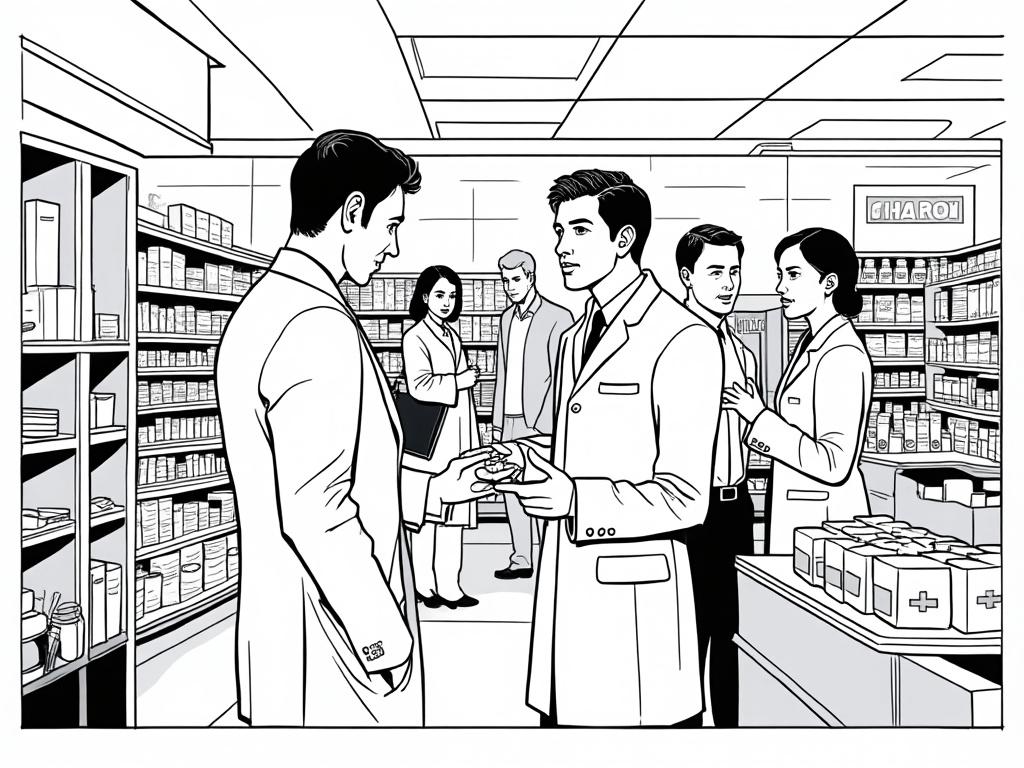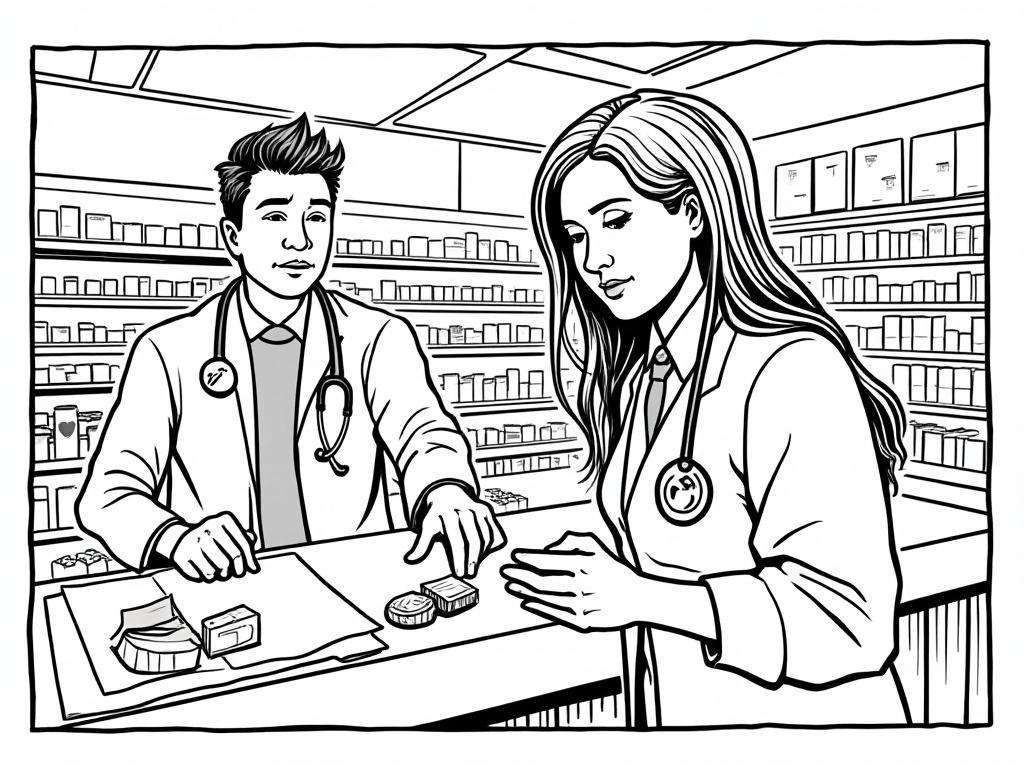
Navigating Greece’s Pharmaceutical Landscape: Access, Innovation, and Market Dynamics
Reading time: 12 minutes
Table of Contents
- The Greek Pharmaceutical Market Overview
- Regulatory Framework and Drug Approval
- Drug Availability and Access Challenges
- Pricing Mechanisms and Reimbursement
- Innovation and Local Manufacturing
- Key Market Challenges and Solutions
- Your Strategic Market Entry Roadmap
- Frequently Asked Questions
The Greek Pharmaceutical Market Overview
Ever wondered how a country of 10.7 million people manages to maintain one of Europe’s most complex pharmaceutical ecosystems? Greece’s pharmaceutical industry presents a fascinating paradox: sophisticated regulatory standards coupled with accessibility challenges that mirror broader European healthcare trends.
The Greek pharmaceutical market, valued at approximately €6.2 billion in 2023, serves as a critical gateway between Western European innovation and Eastern Mediterranean healthcare needs. What makes this market particularly intriguing isn’t just its size—it’s the intricate balance between ensuring drug availability and managing healthcare costs in a post-crisis economy.
Market Dynamics at a Glance
Greece’s pharmaceutical sector operates under unique pressures that create both opportunities and challenges for stakeholders. The market has shown remarkable resilience, with generic drug penetration reaching 78% by volume, significantly higher than the EU average of 52%.
Greek Pharmaceutical Market Comparison
78%
52%
2.1%
3.5%
Regulatory Framework and Drug Approval
Understanding Greece’s regulatory landscape requires navigating through both national and European frameworks. The National Organization for Medicines (EOF) serves as the primary regulatory body, working in harmony with the European Medicines Agency (EMA) to ensure drug safety and efficacy.
The Approval Process Demystified
Here’s where things get interesting: Greece operates under a dual-track system that can significantly impact market entry timelines. For innovative medicines, companies typically choose between the centralized European procedure or the national route through EOF.
Real-world scenario: Consider Pfizer’s experience launching a new oncology drug in Greece. While the EMA approval provided EU-wide access, the company still needed separate pricing negotiations with Greek authorities—a process that added an additional 8-12 months to market entry.
| Approval Route | Timeline | Cost Range | Success Rate | Best For |
|---|---|---|---|---|
| National (EOF) | 12-18 months | €50,000-€150,000 | 85% | Generic drugs, local markets |
| Centralized (EMA) | 15-24 months | €300,000-€500,000 | 78% | Innovative medicines, EU-wide launch |
| Mutual Recognition | 10-14 months | €80,000-€200,000 | 82% | Established products, multi-country |
| Decentralized | 12-16 months | €100,000-€250,000 | 79% | New generics, selected markets |
Drug Availability and Access Challenges
Let’s address the elephant in the room: drug shortages. Greece faces periodic availability challenges that affect approximately 15-20% of essential medicines annually. But here’s the strategic insight most miss—these shortages often create opportunities for agile pharmaceutical companies.
The Supply Chain Reality
Greece’s geographic position creates both advantages and vulnerabilities. As Dr. Maria Konstantinou, former EOF director, noted in 2023: “Our location makes us a natural distribution hub for Southeast Europe, but it also exposes us to supply chain disruptions that ripple across the Mediterranean.”
Case study: During the 2022 supply crisis, innovative companies like Faes Farma successfully captured market share by maintaining consistent supply lines while competitors faced shortages. Their secret? Diversified manufacturing partnerships and proactive inventory management.
Access Barriers and Solutions
The most significant access challenge isn’t regulatory—it’s economic. With healthcare spending constrained to 7.8% of GDP, Greece has implemented strict cost-containment measures that can delay patient access to innovative therapies.
- Price referencing system: Prices benchmarked against 15 EU countries
- Mandatory generic substitution: Pharmacists must offer generic alternatives
- Clawback mechanisms: Pharmaceutical companies contribute to healthcare budget overruns
- Hospital tender system: Competitive bidding for institutional sales
Pricing Mechanisms and Reimbursement
Navigating Greek pricing feels like solving a multi-dimensional puzzle. The system combines external price referencing, health technology assessment, and budget impact analysis—but here’s what the textbooks don’t tell you about making it work in practice.
The Committee for Pricing and Reimbursement (CPR) evaluates new drugs using a sophisticated algorithm that considers clinical effectiveness, cost-effectiveness, and budget impact. However, successful companies understand that the real negotiation happens in the preparatory phases.
Strategic Pricing Approaches
Smart pharmaceutical companies don’t just submit pricing dossiers—they build comprehensive value narratives. Consider Novartis’s approach with Kymriah (CAR-T therapy): instead of traditional pricing, they proposed an outcomes-based agreement that aligned payment with patient outcomes.
Pro tip: The most successful pricing strategies in Greece incorporate health economic modeling that demonstrates long-term healthcare system savings, not just clinical benefits.
Innovation and Local Manufacturing
Greece’s pharmaceutical innovation story is more compelling than most realize. While the country may not rival Switzerland or Denmark in R&D intensity, it’s carved out meaningful niches in generic manufacturing and specialty therapeutics.
The Rise of Greek Pharma Champions
Companies like Vianex and Pharmathen have evolved from regional players to international competitors. Vianex, for instance, now exports to over 40 countries, with international sales comprising 65% of total revenue.
What’s driving this success? A combination of competitive manufacturing costs, skilled workforce, and strategic positioning between European and Middle Eastern markets. For investors exploring opportunities in the region, understanding these dynamics is crucial—much like those considering greek property for sale must grasp local market fundamentals.
Key Market Challenges and Solutions
Every pharmaceutical market has its pain points, but Greece’s challenges are particularly instructive for understanding broader European trends.
Challenge 1: Delayed Payments
Hospital payment delays averaging 180-240 days create cash flow pressures for pharmaceutical companies. The solution? Successful companies have diversified their customer base, focusing on private sector growth and export markets to reduce dependence on public hospital sales.
Challenge 2: Regulatory Complexity
Multiple agencies, overlapping requirements, and frequent policy changes create compliance burdens. Companies that thrive implement robust regulatory intelligence systems and maintain strong relationships with local regulatory consultants.
Challenge 3: Market Access Barriers
Even after regulatory approval, market access can take 12-18 additional months. Forward-thinking companies begin health economics research and stakeholder engagement during the development phase, not after approval.
Your Strategic Market Entry Roadmap
Ready to transform Greek pharmaceutical market complexity into competitive advantage? Here’s your practical action plan based on successful market entries we’ve analyzed:
Phase 1: Foundation Building (Months 1-6)
- Establish local partnerships: Identify distribution partners with established hospital relationships
- Regulatory preparation: Begin dossier preparation and engage regulatory consultants
- Market intelligence: Conduct detailed competitive analysis and pricing research
Phase 2: Market Positioning (Months 7-12)
- Stakeholder engagement: Build relationships with key opinion leaders and payers
- Value demonstration: Develop health economic models and real-world evidence
- Supply chain optimization: Establish reliable distribution networks
Phase 3: Launch Excellence (Months 13-18)
- Market access execution: Navigate pricing negotiations with systematic approach
- Commercial launch: Implement multi-channel marketing strategy
- Performance monitoring: Track market share and adjust strategies accordingly
The Greek pharmaceutical market rewards companies that balance innovation with pragmatic market understanding. As the healthcare sector continues evolving, opportunities will favor those who can navigate complexity while delivering genuine patient value.
What’s your next move in this dynamic pharmaceutical landscape? The companies succeeding today aren’t necessarily the largest—they’re the most strategically agile.
Frequently Asked Questions
How long does it typically take to launch a new drug in Greece?
The timeline varies significantly based on the approval route and drug type. For innovative medicines using the centralized procedure, expect 24-36 months from submission to market launch, including pricing negotiations. Generic drugs through national procedures typically take 18-24 months. The key is starting pricing and reimbursement discussions early in the regulatory process to minimize delays.
What are the main factors affecting drug pricing in Greece?
Greek drug pricing is determined by external price referencing across 15 EU countries, health technology assessment evaluating clinical and economic value, and budget impact analysis. The system also considers therapeutic innovation, unmet medical need, and potential healthcare system savings. Companies should prepare comprehensive value dossiers demonstrating both clinical benefits and economic advantages.
How can pharmaceutical companies overcome payment delays from Greek hospitals?
Successful companies diversify their revenue streams by focusing on private sector sales, retail pharmacy channels, and export markets. They also negotiate payment terms upfront, consider factoring arrangements for receivables, and maintain strong relationships with hospital procurement departments. Building a robust cash flow management system is essential for long-term success in the Greek market.

Article reviewed by Adrian Sokolov, Post-Soviet Industrial Assets | Revitalizing Manufacturing Zones, on June 6, 2025



